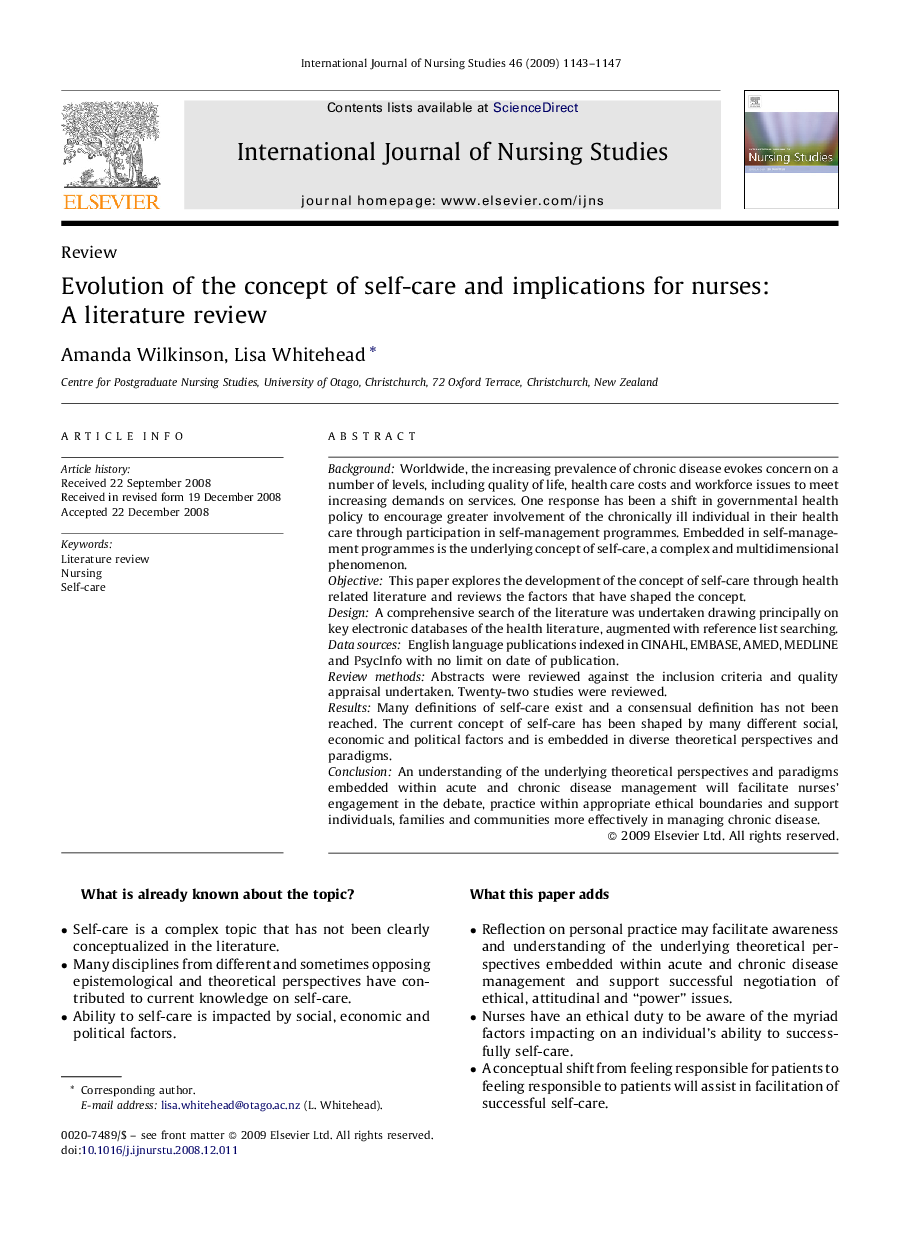| Article ID | Journal | Published Year | Pages | File Type |
|---|---|---|---|---|
| 1076560 | International Journal of Nursing Studies | 2009 | 5 Pages |
BackgroundWorldwide, the increasing prevalence of chronic disease evokes concern on a number of levels, including quality of life, health care costs and workforce issues to meet increasing demands on services. One response has been a shift in governmental health policy to encourage greater involvement of the chronically ill individual in their health care through participation in self-management programmes. Embedded in self-management programmes is the underlying concept of self-care, a complex and multidimensional phenomenon.ObjectiveThis paper explores the development of the concept of self-care through health related literature and reviews the factors that have shaped the concept.DesignA comprehensive search of the literature was undertaken drawing principally on key electronic databases of the health literature, augmented with reference list searching.Data sourcesEnglish language publications indexed in CINAHL, EMBASE, AMED, MEDLINE and PsycInfo with no limit on date of publication.Review methodsAbstracts were reviewed against the inclusion criteria and quality appraisal undertaken. Twenty-two studies were reviewed.ResultsMany definitions of self-care exist and a consensual definition has not been reached. The current concept of self-care has been shaped by many different social, economic and political factors and is embedded in diverse theoretical perspectives and paradigms.ConclusionAn understanding of the underlying theoretical perspectives and paradigms embedded within acute and chronic disease management will facilitate nurses’ engagement in the debate, practice within appropriate ethical boundaries and support individuals, families and communities more effectively in managing chronic disease.
